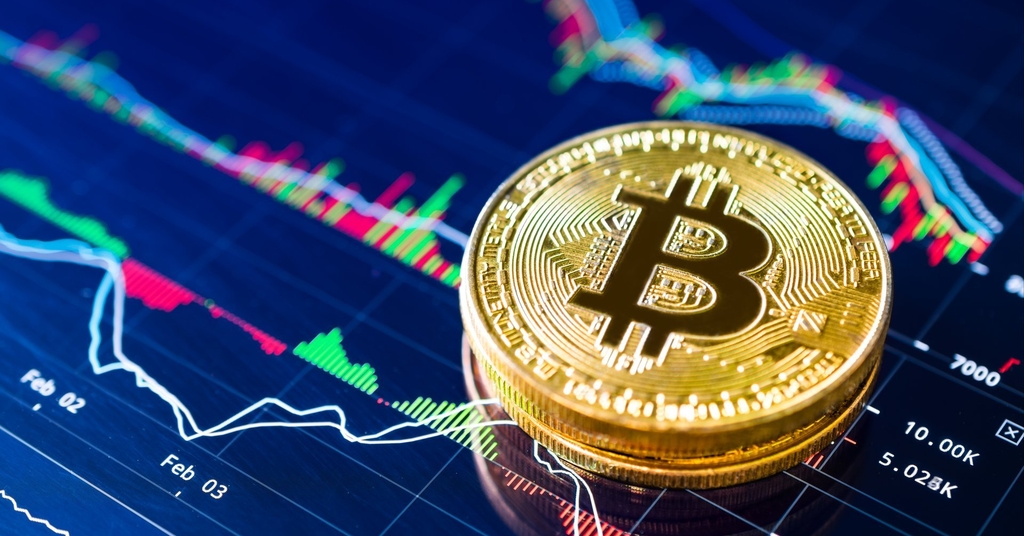Despite the huge interest in the finance and investing world, many people don’t know how to buy Bitcoin cryptocurrency, doing so is as easy as signing up for a mobile app.
Major Issues
- To buy Bitcoin, you must first register for a Bitcoin wallet.
- Traditional payment methods such as credit cards, bank transfers (ACH), or debit cards buy Bitcoins on Bitcoin exchanges using Bitcoin wallets as deposits.
- Bitcoin has experienced price volatility and remains a very unstable commodity in terms of taxation and legality.
First sign up for a Bitcoin Wallet
Before you buy Bitcoin, you must first download the wallet. Bitcoin From a website such as Blockchain.info or Coinbase, or by using a mobile app such as Bitcoin Wallet for Android or Blockchain Bitcoin Wallet for iOS, you will need to complete an online form with basic details which should not take more than two minutes. of the Coinbase account page for Bitcoin wallets on Coinbase. This page is similar to the online banking software used by most commercial customers.
Bitcoin wallets should not be used for long-term storage. Bitcoin or keys should be stored in a secure wallet such as one that uses a multi-signature facility for security.
Use normal money to buy. Bitcoin
Once you have a Bitcoin wallet, you can use traditional payment methods such as credit card, bank transfer (ACH), or debit card to buy Bitcoins on the exchange. Bitcoin Bitcoins Will be transferred to your wallet The availability of the above payment methods depends on the region of jurisdiction and the exchange selected Below is a screenshot of the Bitcoin interface showing the purchase method. and sell Bitcoin and Bitcoin Cash, Ethereum and Litecoin, which are other popular virtual currencies. Users click on the “buy” tab to buy cryptocurrencies and the “sell” tab to sell cryptocurrencies, you choose the currency you are buying/selling and the payment method. (bank account or credit card) you want to use

Keep in mind that Bitcoin exchanges and Bitcoin wallets are not the same thing. Bitcoin exchanges are similar to foreign exchange markets. An exchange is a digital platform where Bitcoin is exchanged for fiat currency, such as Bitcoin (BTC) for US dollars. (USD) While the exchange provides its users with the ability to wallet, it is not their core business, since the wallet must be secure, the exchange does not encourage storing large amounts of Bitcoin or for a long time, therefore it is recommended to transfer Bitcoins. Since security must be your first priority when choosing a Bitcoin wallet, choose one that offers a multi-signature facility.
There are many respected exchanges that provide end-to-end solutions with high security and reporting standards. But caution should be exercised when choosing an exchange or Bitcoin wallet.
Bitcoin Wallet is your private key, not for storage. Bitcoin
The common assumption that Bitcoins are stored in a wallet is technically incorrect. It is not stored anywhere. Bitcoin balances are maintained using public and private “keys,” which are strings of numbers and letters linked via a mathematical encryption algorithm used to generate them. public key (This is equivalent to an International Bank Account Number, or IBAN.) It serves as an address that is broadcast to the world and others may send Bitcoins.
The private key (compared to an ATM key) should be a protected secret and only used to authorize the sending of Bitcoins. “private key” stored in the wallet Some of the safeguards for Bitcoin wallets include encryption of the wallet with a strong password and optional cold storage options, i.e. store it offline.
As a user, you are free to use your Bitcoins and private key to make purchases, pay for services, or send Bitcoins to your friends or family. These are sent using the recipient’s “address”. Selling Bitcoins on an exchange gets you the selling price of Bitcoins in local currency, which can be withdrawn.
Even though Bitcoin is the same (the same everywhere in the world), its price varies from country to country and even on exchanges within the same country. At one point in 2017, Bitcoin prices in South Korea were trading at a 35% premium and in India is 20% to 25% premium. Supply and demand conditions create anomalies in its price.
The number of places where Bitcoins can be used is increasing rapidly and includes large retailers as well as many small businesses and retailers. Officially, it is a legal method of payment. In 2017, Japan accepted Bitcoin as a legitimate payment option.
Bitcoins are not stored in wallets. Bitcoin balances are rather maintained using public and private “keys,” which are a large number of numbers and letters linked through a cryptographic algorithm.
Bottom line
The changing regulatory stance, increasing adoption and adoption and investment in Bitcoin startups and products has greatly increased the trust in Bitcoin. However, it is still in its nascent stage with price volatility and uncertain stance. about taxation and legality
Invest in Cryptocurrencies and Initial Coin Offerings (ICOs) are highly risky and speculative, and this article is not a recommendation by Investopedia or the author to invest in cryptocurrencies. Because each individual’s situation is unique, a qualified professional should be consulted before making any financial decisions. makes no representations or warranties as to the accuracy or timeliness of the information contained herein. At the time of writing the author has no crypto
Article Source – Investopedia.com










Leave A Comment